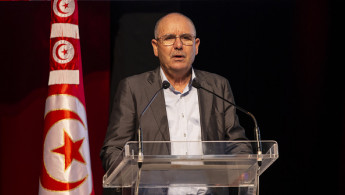Tunisia union members can 'choose' to take part in upcoming referendum, leader says
The leader of Tunisia’s powerful UGTT union, announced on Saturday that its members would be free to choose whether they participate or not in the country’s upcoming referendum next month.
The union’s leader Noureddine Taboubi, made the announcement at the end of a meeting with the UGTT’s administrative commission, in the capital Tunis, reported the Turkish Anadolu Agency.
Taboubi stated that "given the diversity that characterises the UGTT and the union family, the [union centre] has decided to delegate to everyone and to those who share our aims, the freedom to choose and participate in the referendum or not".
A new draft constitution will be presented during the referendum, with Tunisian voters expected to decide whether it is approved.
The union has expressed that the proposed constitution contains "failures", as the draft will include broader powers for President Kais Saied and a reduced role for other bodies that could threaten the North African country’s democracy.
However, the union has also stated that the proposed constitution preserves chapters related to freedoms and rights which also existed in the 2014 constitution. They still maintain that some restrictions could threaten these freedoms and rights while making way for an opportunity to violate them.
Autocrat President Kais Saied announced the drafting of a new constitution in May, saying that "traitors and non-nationalists" will not participate in the committee tasked with drafting the new constitution.
The new constitution is a centrepiece to Saied’s reform plans, following his dismissal of the government last year and the subsequent dissolving of parliament.
Saied insists the changes are needed to "save Tunisia" from a prolonged political and economic crisis and that the new constitution will respect individual freedoms and mark a new Tunisian republic.
Critics however, have slammed the new constitution draft, which will be presented next month ahead of the referendum, as a "farce", saying that it will ultimately give more powers to the president, such as having the sole responsibility to present draft laws and state budgets.
Moreover, the draft constitution will also make no mention of Islam as a state religion, in a bid to tackle Islamist-inspired parties, such as Ennahda, which warned against "revisiting questions that were settled by the people since independence".
Over the past year, Tunisia has been experiencing a severe political crisis in light of Saied’s power-grabbing moves, which have been described as a "coup" by his opponents.
The referendum will be held next on 25 July, on the same date of his power grab last year, with parliamentary elections expected to be held on December 17.





 Follow the Middle East's top stories in English at The New Arab on Google News
Follow the Middle East's top stories in English at The New Arab on Google News


